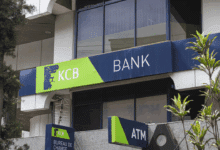
The Kenya Revenue Authority (KRA) has announced plans to implement a new revenue system designed to integrate with cryptocurrency exchanges and marketplaces. KRA Crypto Tax Evasion
This initiative will enable the tracking and recording of all digital currency transactions in real-time. “The system shall integrate with cryptocurrency exchanges and marketplaces to track and record cryptocurrency transactions. It shall capture transaction details, including transaction date, time, type and value,” KRA said in a document outlining their tax collection strategies for the financial year 2024/25.
Scheduled for implementation by December 25, 2024, the primary goal of this system is to combat tax evasion and prevent illicit activities, such as fraud and money laundering, in the largely unregulated cryptocurrency market.
While the crypto sector in Kenya remains largely unregulated by authorities such as the Capital Markets Authority (CMA) and the Central Bank of Kenya (CBK), its popularity has surged, with exchanges like Binance and Coinbase offering services. Most crypto buyers and sellers in the country engage in peer-to-peer (P2P) transactions, accepting payments through mobile money to evade regulatory oversight.
As a result, KRA has indicated that the agency has been unable to effectively track and tax transactions due to an outdated system, which has led to a “significant loss of revenue for the government.” KRA emphasized that earnings from crypto transactions can be taxed according to Section 3 of Kenya’s Income Tax Act, stating, “The goal is to have a robust and efficient system that will enable KRA to collect taxes on cryptocurrency effectively and efficiently.”
This effort is part of a larger strategy by the KRA to leverage technology for improved tax compliance and revenue collection. The authority is also exploring the incorporation of artificial intelligence and machine learning to analyze extensive datasets, identify patterns of tax evasion, and predict potential future revenue streams. Additionally, the integration of M-PESA Paybills and Till numbers as virtual Electronic Tax Registers (ETRs) is anticipated to increase the number of tax-registered touchpoints tenfold, thereby significantly expanding the tax base.
The crypto market, known for its volatile price swings, has in recent years attracted a generation of young traders seeking quick returns, despite warnings from the CBK and CMA regarding the associated risks. This surge in adoption can be attributed to factors such as low transaction fees, faster transactions, and decent internet penetration in the country. KRA Crypto Tax Evasion
Chainalysis, a US blockchain analytics firm, notes that most Kenyans with crypto holdings acquire them for purposes such as preserving savings, commercial transactions, and individual remittances to other continents, especially Europe and the United States. Given this potential, KRA recognizes the importance of developing a system to track and collect taxes on cryptocurrency transactions.
However, the legal status of crypto exchanges in Kenya remains unclear, which could pose challenges for KRA in integrating its systems with these platforms. In 2023, an amendment to the Capital Markets Act was introduced in the National Assembly to allow for a capital gains tax on exchanges and an excise duty on transactions. This bill, still pending approval, was previously endorsed by the finance committee, highlighting ongoing efforts to establish a regulatory framework for the crypto sector.
If successful, KRA’s real-time tracking system could serve as a model for other tax authorities facing similar challenges in adapting to the rise of cryptocurrencies. While the initiative may encounter resistance from traders who frequently utilize mobile money services, it is expected to enhance transparency and efficiency in tax collection.
This move aligns with global efforts to establish greater oversight of cryptocurrency transactions and could serve as a guiding example for other countries navigating similar regulatory dilemmas in the digital finance landscape. Ultimately, striking a balance between oversight and innovation will be vital to fostering growth within this emerging industry. KRA Crypto Tax Evasion























